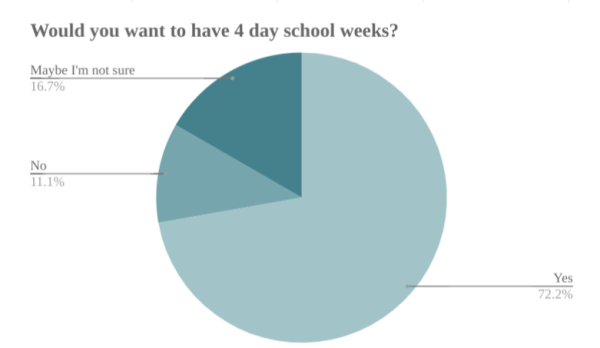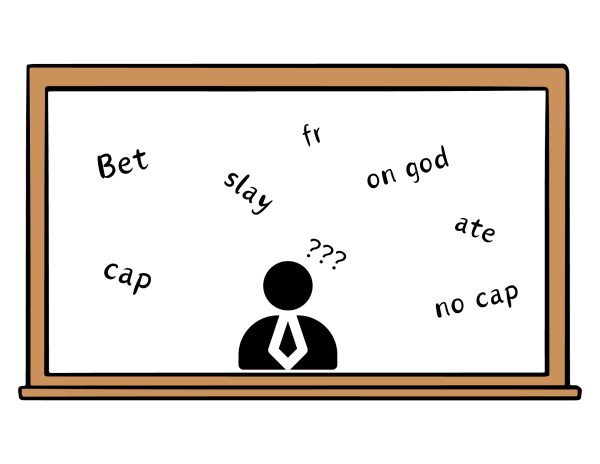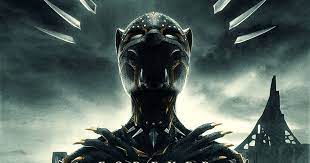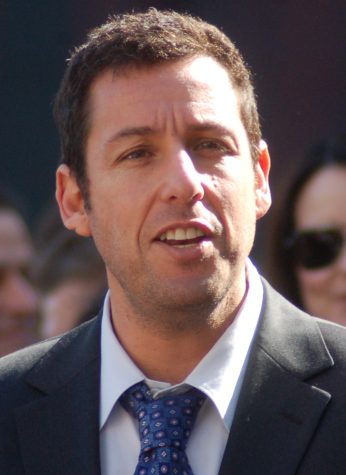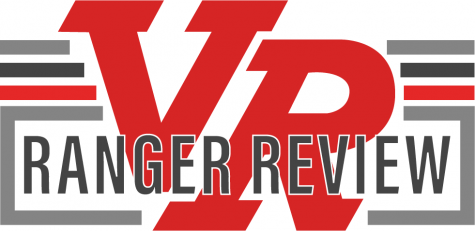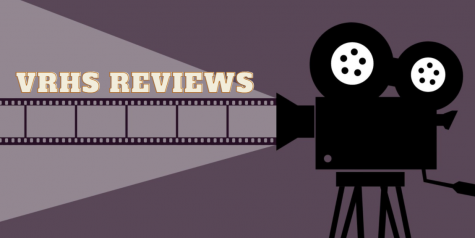1984 and 2015: Was George Orwell a Psychic?
“Big Brother is watching you.”
“War is Peace. Freedom is Slavery. Ignorance is Strength.”
With those memorable quotes, a captivating story, thinly veiled criticisms of totalitarianistic governments and reversing the last two digits of the year he wrote it in, George Orwell penned 1984, a dystopian novel where the freedoms we love and take for granted are no more. Even our thoughts are under constant scrutiny and surveillance. Since Orwell, the ideas of freedom, what it means and what are the consequences of it, have been contemplated in various mediums. Marvel comics did it with Civil War, 2K Games did it with the Bioshock series, even 1984 wasn’t Orwell’s first time with exploring these ideas, as he had done it earlier in Animal Farm.
Now that we’re in 2015, many would look at our world today, compare it to 1984 and think that Orwell was off base. In many ways, our freedoms haven’t gone away, maybe even changing for the better. However, there are instances where our own government, the one that has championed freedom of speech, religion, press, etc., finds itself in conflict with the people as it tries to figure out where and if a line should be drawn when it comes to those rights. Not to mention that certain aspects of society today do parallel Orwell’s bleak vision of the future. It’s then that the comparisons can be drawn between the situation at hand and 1984, sometimes throwing out the adjective of “Orwellian” to describe the issue. This begs the question: how close did we get to George Orwell’s famous novel?
First of all, this isn’t a subject that is coming out of nowhere. Senior AP English classes read 1984 and held a socratic seminar to discuss it. It was during this time that questions were posed about the novel and the thoughts that some of our fellow students had about how our society mirrors that of 1984 were brought to light.
During this socratic seminar, a lot of obvious differences were thrown out, as it was quickly decided that some of the things in 1984 couldn’t possibly happen. Take for example, the character of Big Brother: the enigmatic leader of the continent of Oceania. Despite Orwell’s well known hatred of Communism, it probably isn’t far fetched to say that Big Brother is not based off Joseph Stalin or any other communist leader around at the time. As evil as people like Stalin are, the aspect that Big Brother beats them in is that he doesn’t seem to be human. That is hinted toward the end of the novel, when the character of O’Brien tells Winston Smith, the novel’s protagonist, that Big Brother and his followers, known as “The Party,” obtain power because they simply want power. That is such a one-dimensional point of view and character trait. Surely, there can’t be a person on Earth that demented or robotic. At least with the infamous leaders of history, you could tell that they had ulterior motives for having power, a lot of said intentions actually being pretty good in the beginning. Somebody like Big Brother would be weeded out quickly as a psychopath, and no fool would allow that guy into power.
This idea brought up another point. If there’s one thing humans are good at, it’s noticing fast change. It’s the slow, calculating kind of changes that seem to go over human heads, until it’s too late. That is an explanation as to how fascist, totalitarian governments are born. For example, had Hitler starting killing Jews right after he came into power, surely somebody would’ve noticed that, and at least tried to stop it. Before doing all of that, Hitler had to be patient, cunning and very calculating. He had to gain credibility with his people so that they would trust him and his judgment. Under Hitler’s rule, Germany did get back on track economically, and to this day, achievements from his time in power are still around today, such as Germany’s Autobahn and Volkswagen cars. Hitler was even named “Man of the Year” by Time in 1938, thus giving him more credibility as a leader, not to mention no negative attention from other countries. Since he had a good track record, nobody really said too much when he began to systematically weed out various Jewish people, at least, not until it was too late.
Even in America, the role of government has shifted. Though America has yet to become a dictatorship like the old USSR or an oligarchy like Hitler and the Nazi party, there’s no denying that certain people in our government are gaining more power than what the founding fathers would’ve liked. Today, the President is “the leader of the free world,” the face of our country and the person that either gets praised or criticized for all the things that happen while he’s in power. Had America strictly stuck to what the constitution read, that shouldn’t have happened. For a while, that’s what the country did, not wanting to do anything unless it was explicitly allowed in the constitution. That would’ve been okay, if the constitution wasn’t as ambiguous as it is. We think we understand what the constitution says, but considering that the people who wrote it were the same people that said that “all men are created equal,” and yet thought it was okay to deny rights to African Americans and women for so long, who knows what they meant?
For example, the constitution talks about “freedom of speech,” but what does that mean? What is “speech?” When the constitution was written, “speech” was probably referring to actually speaking or the newspaper. That was what was around at the time, but today in 2015, we have the Internet, books, so many many more outlets than America in the 1700’s. None of those outlets actually involve physical speech, so should they be included when we talk about “free speech?” Most would say yes, but not because they read the constitution. Our interpretation of the constitution is a result of more than 200 years of judicial interpretation, which no, was not a power explicitly given to the courts. It was given to the courts after Marbury v Madison in 1803. Perhaps the government at the time realized a little bit how unclear the constitution is and realized that the language of government would have to change with its people and its society. That’s where the views of our government come from: years of judicial review, changes and “improvements” (depending on who you ask), again, showing how the slow changes that occurred in our country over this long period of time don’t make Americans stop and think about what the country has become.
This is also why the role of the president has changed. While none of our presidents have gone off the deep end and declared themselves the supreme ruler of America, the president’s importance level has risen significantly. It’s no secret that the president gets credit for everything that happens in the country, be it good or bad.
For example, President Obama’s approval rating went up because of the low gas prices. Not to long ago, it was down because they were so high. The truth is, the president has absolutely no control over gas prices. OPEC has the power to change the price of gas, which is a reflection on how high the demand is and how much oil is available. With the price lower, people will buy more gas, but OPEC is going to notice the demand and increase the price. When the price gets too high, people will cut back and the price will fall again. Gas prices rise and fall due to the rules of simple economics, not the president.
The president gets a lot more credit and hatred than he really deserves, but the reason for that is best summed up with another point that was present in 1984 and the socratic seminar. It’s easier to love or hate one person than to hate a group. In 1984, that is the role that Big Brother serves. Big Brother is probably just a figurehead for all of the Party members to point to. In fact, because Big Brother is only seen in posters and talked about, yet is never actually shown as a real character, there may not even really be a “Big Brother.” Our president is similar to that. That is the only person in our government that people do show passion for. That is the big deal in many people’s political world, voting for the president. Actually, all of the really big decisions are made by Congress, but there are more than 200 of them. It’s not easy to tell who’s the weak link in that large group of people, and nobody seems willing to do all of that work. Truth be told, it seems that Americans are content with giving all of the power given to one guy, as long as we can vote him out when he does a terrible job. Even the founding fathers wanted a king, but they just wanted to pick him, and change his name. That name became the President of the United States.
Then, of course, it was impossible to describe the novel without talking about the Ed Snowden story. Snowden, the man who revealed that the government is capable of and has been listening to our phone calls, really brought up the comparisons to 1984 (not to mention, the sales of the actual book). Everybody went hysterical about this revelation, worried that privacy had just been killed in this country. People debated on whether or not to call Snowden a whistleblowing hero or a traitor, and a big deal was made from either side to get to know more about this man and what he knew or to catch him and bring him to justice.
Snowden may have given the government all the attention in that realm, but the government isn’t the only entity that is capable of this type of surveillance. Social media sites like Facebook have been shown to be capable of similar feats. They can save your information, what sites you visit, what ads you pay attention to, and of course, we turn over all kinds of personal information to these sites from our names to even pictures of ourselves. Not to mention that everything we post on the Internet, whether it stays up or not, is always stored somewhere. It never really goes away. Somebody does pay attention to all of those details, somebody sees it somewhere, somehow. And yet, nobody is getting upset about it, despite no indication that this behavior is stopping anytime soon.
Much like “The Party” of 1984, outside forces seem to control what the people are for or against, and what they are concerned about. In the novel, “The Party” told its citizens what country they were at war against, always changing it for whatever reason. One week it would be one country, and the next, it would be another. The people went along with it, and never questioned it. The news media serves as a similar force in real life. It’s the media that starts up the hysteria for stories and then pushes us along when something else comes along, even if the story isn’t resolved. Remember the Malaysian airplane that crashed in the Indian Ocean, and what a “tragedy” that was? Nobody ever found that plane or the people, but it still faded from our memories. Remember when Ebola was supposed to wipe out the population? It’s still not eradicated, but nobody says anything anymore. Remember Ed Snowden? He’s still on the run, but we stopped caring about that. The attention span of the people seems to grow shorter and shorter each day, as we get pushed along to what’s of concern now. The last big news fiasco was probably the Ferguson trials, but even that’s beginning to fade.
This, if anything, is the biggest parallel to the societies of 1984 and 2015. There just seems to be a lot of apathy, and not enough people willing to change things for the better. In short, nobody cares, and why should they? When has one person ever made a difference in the world? What would it matter if one person gripes about something or another? The answers are never, and it doesn’t. Nobody ever single handedly changed the world around them, or their society’s way of thinking as a whole, at least, not on their own. As much as people like Martin Luther King and Mahatma Gandhi are revered, they didn’t make changes happen on their own. Dr. King and Gandhi had huge followings, people who actually listened to them and shared their ideas. All they did was say, “Hey, I don’t agree with this,” and some people came to their side, feeling the same way. So while one person can’t make a change on their own, one person can get it started. It may not be easy to stand against the grain, but if one person sticks their neck out to express an idea, somebody is going to share it. Despite the book’s bleak ending, that seems to be what Orwell wanted the reader to bring home. If you really want to improve your world or stop it from going into a state of ignorance like 1984, speak up. Somebody will listen to you, and though it may take time, the changes that have been brought upon the world were done so as a result of time, patience and a desire to make the world a better place.


